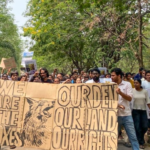
Iranian Singer Arrested for Performing Without Hijab: A Violation of Artistic Freedom?
Introduction: The Arrest and its Global Implications
In a recent event that sent shockwaves around the world, a well-known Iranian singer was arrested for performing without a hijab. This incident not only highlights the strict enforcement of Iran’s dress codes but also raises profound questions about artistic freedom and human rights in the country.
The Incident: Details of the singer’s arrest and the circumstances surrounding it.
The singer, who had gained popularity for her bold music and performances, was taken into custody shortly after her concert in Tehran. Eyewitnesses reported that she appeared on stage without the mandatory hijab, defying the state’s laws that require women to cover their hair in public settings. Security forces arrived swiftly, leading to her detention amidst a crowd of shocked fans.
International Reaction: Initial responses from human rights organizations and international bodies.
Human rights organizations condemned the arrest, arguing that it is a clear violation of artistic expression. Prominent groups like Amnesty International and Human Rights Watch called for her immediate release and urged the Iranian government to respect artists’ rights. International bodies expressed concern over the implications of this crackdown on freedom of expression in Iran.
The Broader Context: Brief overview of Iran’s strict hijab laws and their enforcement.
Since the 1979 Islamic Revolution, Iran has enforced strict laws regarding the hijab. These regulations have fluctuated over time but remain rigid, with penalties for those who resist compliance. This incident underscores a broader issue where personal freedoms and artistic expression clash with state-imposed dress codes.
Understanding Iran’s Hijab Laws and Their Enforcement
Historical Background: Evolution of hijab laws in Iran since the 1979 revolution.
The hijab laws in Iran were established after the revolution, aimed at promoting Islamic values. Initially enforced with relative flexibility, these laws have become increasingly strict over the decades. Many women have protested against such regulations, arguing that they infringe on their personal freedoms.
Legal Framework: Specific laws pertaining to the mandatory hijab and associated penalties.
Iran’s legal framework states that failing to wear a hijab can lead to a range of consequences:
- Fines: Financial penalties for first-time offenders.
- Imprisonment: Repeated violations can result in more severe legal repercussions, including jail time.
- Social Repercussions: Public shaming or familial consequences often accompany legal punishments.
Enforcement Mechanisms: Methods used by authorities to enforce hijab regulations.
Authorities employ various strategies to enforce hijab laws, including:
- Patrols: Police units actively monitor public spaces for violations.
- Surveillance Cameras: Monitoring systems collect evidence against suspected offenders.
- Public Appeals: Campaigns encourage citizens to report violations.
The Singer’s Case: A Deeper Dive
Identity and Background: Detailed information about the singer, her musical career, and public profile.
The arrested singer, known for her unique blend of traditional and modern music, is a beacon of hope for many young women in Iran. Her songs often touch on themes of love and freedom, resonating with a wide audience. With a growing following on social media, she has become a symbol of resistance against oppressive norms.
The Performance: Description of the performance that led to her arrest, location, and audience.
Her latest concert took place in a popular Tehran venue. Fans were thrilled to see her perform, celebrating their cultural heritage through music. However, the excitement turned to fear when lyrics of empowerment became an offense in the eyes of the law. Thousands in attendance witnessed the shocking arrest, leaving them devastated.
Legal Proceedings: Information regarding the charges, legal representation, and potential sentences.
Following her arrest, charges were quickly brought against the singer, including “encouraging immoral behavior” and “disobeying public decency laws.” Legal representation has been sought, though government restrictions make it difficult for her to receive fair support. If convicted, she faces fines and a potential prison term.
Artistic Freedom and Censorship in Iran
Restrictions on Artistic Expression: Examples of other artists facing censorship or persecution in Iran.
Many artists in Iran have faced censorship for their work:
- Filmmakers have had their films banned or altered.
- Writers often self-censor due to fear of repercussions.
- Musicians struggle to share their messages freely.
The Role of Music: Significance of music as a form of cultural expression and resistance in Iran.
Music in Iran serves as a powerful tool for cultural expression. It reflects society’s struggles and aspirations. Many musicians strive to push boundaries, making their art a form of resistance against oppression.
International Pressure: Analysis of international efforts to advocate for artistic freedom in Iran.
Growing international pressure has highlighted the need for change. The art community worldwide is advocating for musicians like the arrested singer, emphasizing the importance of artistic freedom. Support from global audiences can help create a safer environment for artists in Iran.
The Impact on Women’s Rights and Social Activism
The Symbolism of the Hijab: Diverse perspectives on the hijab’s meaning and significance for Iranian women.
The hijab is a complex symbol in Iran. For some, it represents faith and tradition, while for others, it signifies oppression and lack of freedom. Women continue to debate its place in their lives and society.
Women’s Activism in Iran: Examples of women’s protests and activism against mandatory hijab laws.
Women in Iran have increasingly mobilized against compulsory hijab laws. Protests have gained attention, with women symbolically removing their hijabs in public to challenge the status quo. These acts of defiance resonate worldwide, inspiring other movements.
The Wider Implications: Potential impact of the arrest on women’s rights and social movements in Iran.
The arrest could catalyze further protests and activism for women’s rights in Iran. As more people rally against oppressive laws, it may lead to significant changes in public attitudes and government policies.
Navigating the Complexities: A Call for Action
Supporting Iranian Artists: Ways individuals and organizations can show solidarity with Iranian artists.
- Spread Awareness: Share stories of artists facing persecution.
- Support Humanitarian Groups: Contribute to organizations advocating for human rights.
- Engage on Social Media: Use platforms to amplify their voices.
Advocating for Change: Strategies for advocating for greater artistic freedom and human rights in Iran.
Pressure on governments and institutions can lead to change. This includes:
- Contacting Representatives: Encourage officials to address human rights abuses.
- Amplifying Voices: Support artists and activists through campaigns.
- Advocating for Policy Changes: Work towards legal reforms in Iran.
The Future of Artistic Expression: Discussion of the potential long-term effects of this case on artistic expression in Iran.
The outcome of the singer’s case could have lasting effects. A refusal to grant her freedom might intensify global scrutiny, potentially leading to significant shifts in artistic expression and cultural identity in Iran.
Conclusion: A Call for Global Awareness and Action
Key Takeaways: Summarization of the main points and their significance.
The arrest of the singer highlights ongoing struggles for artistic freedom and women’s rights in Iran. It reflects a broader conflict between state control and individual expression, resonating well beyond its borders.
Further Research: Suggestions for readers interested in learning more about the topic.
Readers can explore:
- Books on women’s rights in Iran.
- Documentaries highlighting artistic censorship.
- Articles from human rights organizations tracking developments.
A Look Ahead: Speculation on the potential future implications of the singer‘s arrest.
The global community’s response will likely shape future actions regarding artistic freedom in Iran. Increased support for the singer could inspire more Iranians to speak out, challenging oppressive norms and advocating for change.
Arne Slot’s Post-Match Analysis: Liverpool’s 2-2 Draw Against Fulham











